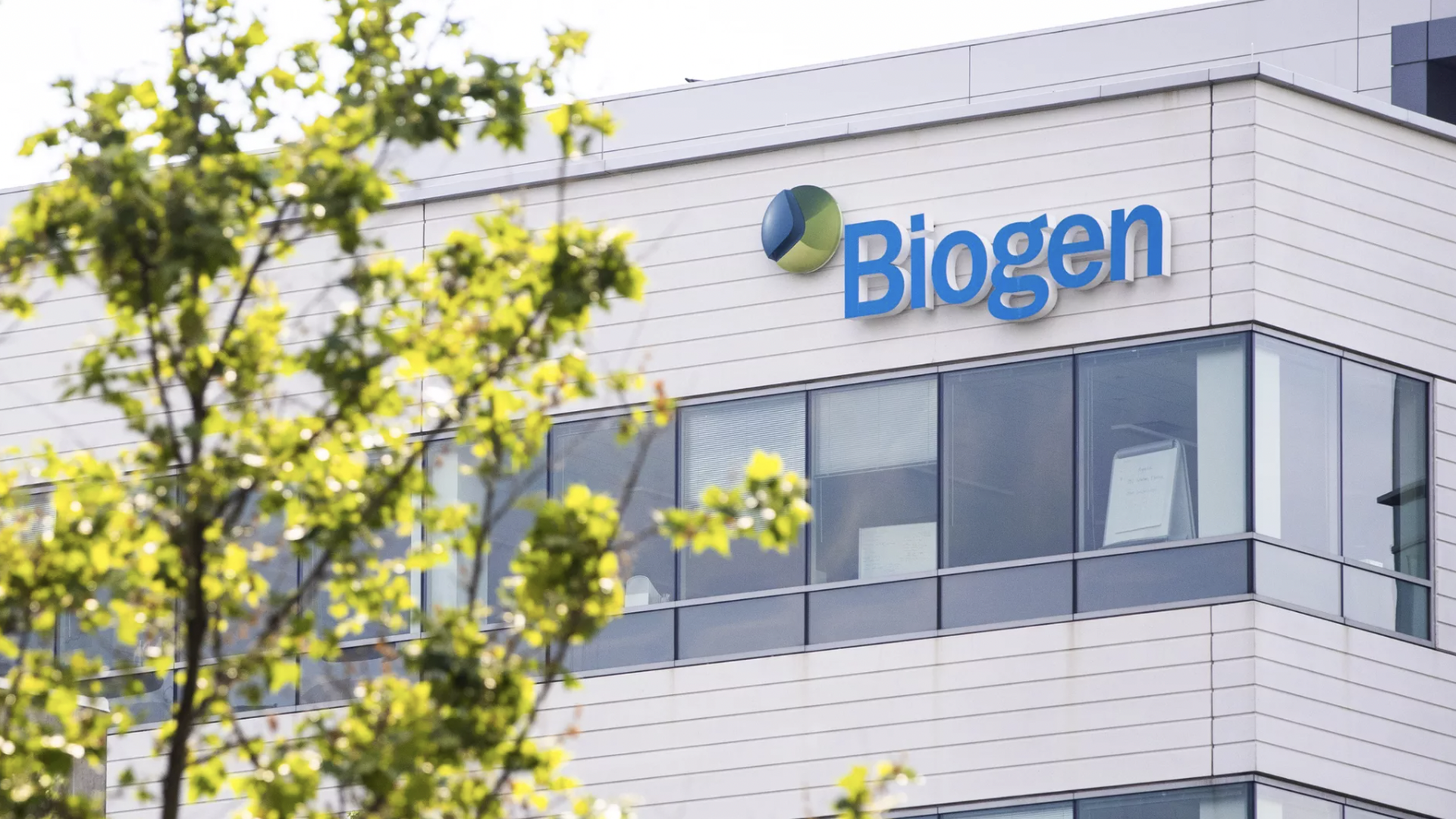Plus: UnitedHealthcare delays controversial policy | Friday, June 11, 2021
| | | | | | | Presented By PhRMA | | | | Axios Vitals | | By Tina Reed ·Jun 11, 2021 | | Good morning and happy Friday, everyone. Today's newsletter is 838 words or a 3-minute read. Situational awareness: Another indicator the U.S. has reached a new phase in the COVID pandemic? Sales of liquor and contraception have soared recently as young singles embrace a "Hot Vax Summer," the Washington Post reports. | | | | | | 1 big thing: Biogen says FDA didn't push for trial |  | | | Photo: Adam Glanzman/Bloomberg via Getty Images | | | | Two Biogen executives told Axios' Bob Herman in an interview that they didn't conduct another clinical trial for the company's newly approved Alzheimer's drug because the FDA didn't push them to do so. - They also said the drug is fairly priced.
Why it matters: The scientific consensus is the drug, Aduhelm, has not been proven to work. But Biogen — and the FDA — are content with "hopefully" validating the $56,000 drug's efficacy at some unknown point in the future. Bob spoke with Maha Radhakrishnan, Biogen's chief medical officer, and Chirfi Guindo, Biogen's head of global product strategy and pricing. - When asked why Biogen didn't do a confirmatory trial before seeking approval, Radhakrishnan said: "When we decided to go back into discussions with the FDA, after really looking at the data, we were essentially respecting the guidance from the FDA in terms of what was needed to submit the [drug application]. All companies follow the pathway given by the regulators."
- Asked why they believe Aduhelm's $56,000 list price is fair, especially considering this hasn't been proven to work, Guindo said: "We've consulted with experts, health economists, clinicians, as well as payers and policy leaders, because we take this responsibility very seriously. We were guided by the value that Aduhelm has and will have going forward."
- "You keep saying it has not worked," Radhakrishnan said in the interview. "The data from our studies actually talk to the evidence seen in the study, which is what we're looking to verify by the next study," he said.
Read the transcript. |     | | | | | | 2. Catchup needed on routine vaccinations |  The sharp decline in routine childhood immunizations following stay-at-home orders last spring reversed considerably by the fall. But it "was not sufficient to achieve catch-up coverage," a new report out from the Centers for Disease Control and Prevention Thursday shows. Why it matters: Children behind on their shots for preventable diseases like measles and whooping cough could pose a "serious public health threat" during the return to in-person schooling this fall, Axios' Marisa Fernandez writes Share this story. |     | | | | | | 3. Fresh scrutiny around lab risks |  | | | Illustration: Sarah Grillo/Axios | | | | The controversy over the origin of the COVID-19 virus is renewing focus on how the risks and benefits of pathogen-altering experiments are weighed and managed, according to Axios' Alison Snyder and Bryan Walsh. Why it matters: Better governance of biorisks would limit the threat of a human-made pandemic — and could help identify the origin of future outbreaks more quickly and with a lot less controversy. What's happening: There's no conclusive evidence to support the idea that SARS-CoV-2 emerged from a lab accident, but the possibility is spurring debate about the risks of some biological research and guardrails for gain-of-function research. - In some of that research — but not all — scientists enhance viruses to make them more transmissible or more lethal, arguing it can provide insights about the pandemic potential of a pathogen.
- But the scope of gain-of-function research isn't sharply defined and can encompass a wide range of experiments.
The bottom line: Whatever the ultimate cause of the COVID-19 pandemic was — and we may never know — it's reasonable to take steps to better govern research that could go wrong. |     | | | | | | A message from PhRMA | | We are focused on our mission: saving lives | | |  | | | | We're not just talking about vaccines. Manufacturers are working to deliver 11 billion vaccine doses in 2021 alone. We have constructive ways to deliver vaccines, continue to innovate and lower the cost of medicine. That is our focus, day-in and day-out and that work continues. | | | | | | 4. UnitedHealthcare walks back ER policy |  | | | Illustration: Lazaro Gamio/Axios | | | | UnitedHealthcare is delaying a new policy that would have declined or limited coverage of an emergency room visit if the visit was found to be non-emergent after the fact, Axios' Bob Herman reports. - United said it would delay the policy until at least until the "end of the national public health emergency period."
Driving the news: The largest U.S. health insurer came under fire from provider and hospital groups who said the policy came at a particularly bad time, given that many patients might still be avoiding seeking appropriate care because of lingering COVID fears. Between the lines: The pandemic already led to large reductions in patients seeking ER care, leaving experts to wonder why the nation's largest health insurer now wanted to initiate a change that would force patients to diagnose themselves and self-ration care. - Research published this week in Health Affairs found the most serious visits — those for emergency, nonpreventable care — decreased by 40%, and nonemergency visits decreased by 52%, Axios' Caitlin Owens reported.
- The decision seemed to be motivated by making sure people didn't return to old habits, Chas Roades, a co-founder of Gist Healthcare, told New York Times. "I can't quite believe the juice is really worth the squeeze on this policy right now," he said.
|     | | | | | | 5. Dog of the week |  | | | Photo: Julia Kenney | | | | Meet Laika, an 11-year-old Schnauzer-Corgi mix, also called a schnorgi. (This Vitals author has personally never heard of a "schnorgi" before. That is a pretty awesome name for a dog breed.) - Laika's mom Erinn, who does fundraising for a major cancer research hospital in Chicago, adopted Laika six months ago.
- Laika loves visiting her grandparents in the suburbs, taking long naps, and playing with her new dog puzzles.
If you have a dog of the week (or pet of the week) you want to nominate, email me here at tina.reed@axios.com. |     | | | | | | A message from PhRMA | | We are focused on our mission: saving lives | | |  | | | | We're not just talking about vaccines. Manufacturers are working to deliver 11 billion vaccine doses in 2021 alone. We have constructive ways to deliver vaccines, continue to innovate and lower the cost of medicine. That is our focus, day-in and day-out and that work continues. | | |  | | The tool and templates you need for more engaging team updates. | | | | | | Axios thanks our partners for supporting our newsletters. If you're interested in advertising, learn more here.
Sponsorship has no influence on editorial content. Axios, 3100 Clarendon Blvd, Suite 1300, Arlington VA 22201 | | | You received this email because you signed up for newsletters from Axios.
Change your preferences or unsubscribe here. | | | Was this email forwarded to you?
Sign up now to get Axios in your inbox. | | | | Follow Axios on social media:    | | | | | |










No comments:
Post a Comment